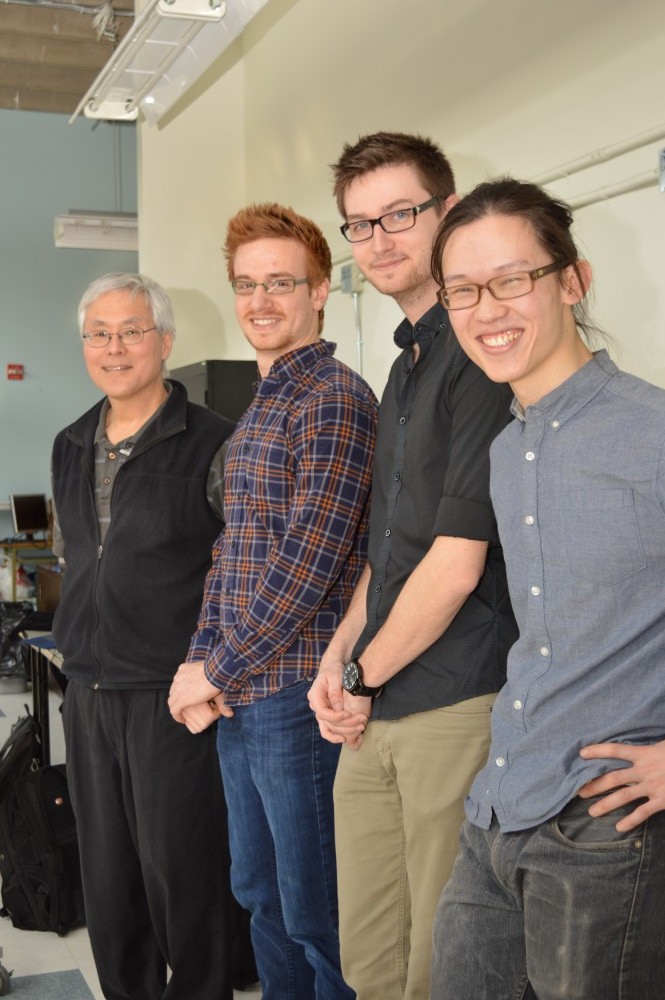
A team of student designers and coders beat 29 other groups to win first prize at Algonquin’s December Applied Research Day with a winning web application that shows complex information in a simple way. But it wasn’t the team’s first time competing.
“We didn’t even rank in the top three in the summer,” said Christopher Elliott, one of the lead professors on the project.
Elliott said they won because the students had clearer pitches for the judges after working on the application for eight months.
Their project, called Galileo Interactive Business Navigator, was commissioned by Global Advantage Consulting Group last April. The organization collects detailed information about where companies fit in their industry and displays the data on posters.
However, the posters had small font and were hard to read, so Global Advantage decided they needed an interactive digital display instead. That’s where the Algonquin team came in.
Their application lets users see the big picture and then zoom in for details.
“It’s pretty innovative, no one’s ever done this before,” said John Omura, project manager for the Applied Research Design Centre. “It’s a big change in the way these guys will be doing business.”
Right now Galileo Navigator is still a prototype. In the meantime, Global Advantage is showing the students’ work to clients. They even hired one of the team’s developers, Mark Friedrich.
Professor Adam Jarvis made sure the student designers could explain what they were doing and how they would apply those skills in the future.
Second-year computer engineering student John Cockrem convinced professor Christopher Elliot to let him work on Galileo Navigator this semester.
“I just kept bugging him about it until he hired me,” said Cockrem, who said that it looks great on a resume.
Elliott said that after eight months his developers were self-sufficient and communicated more naturally.
“I believe people who have autonomy are empowered,” said Elliott. “They probably understand some of the technology better than I do.”


